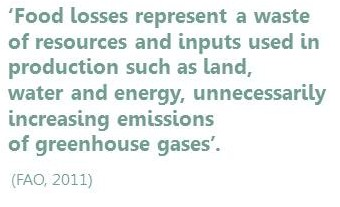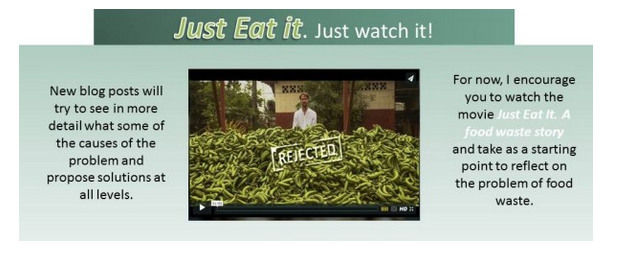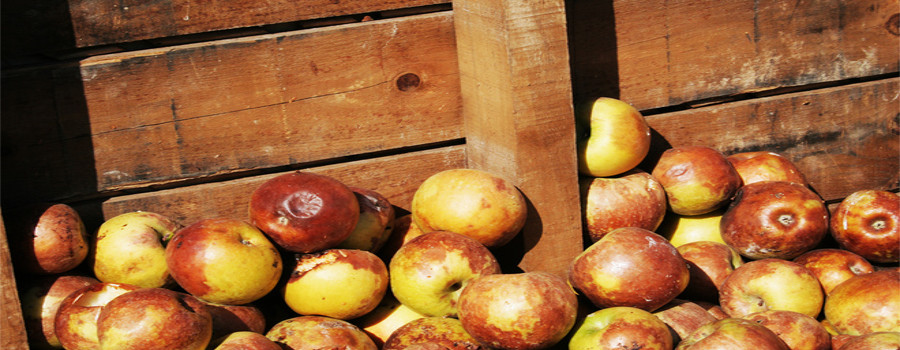We like food. We like eating. The gastronomy is fashionable. TV channels and programs dedicated exclusively to cookery, children chefs, kitchenware that before only used to have the chefs come to our homes, blogs with a plenty of recipes, and culinary criticisms, even TV programs about the science of food or how do it. We can make our own beer, wine or cheese at home, buy us a bakery machine, any of us have access now or all kinds of ingredients to emulate our favorite chefs. So how can we explain that every year tons of food are thrown away?

From this perspective starts the plot of the movie Just eat it, a 2014 documentary which attempts scrutinizing the causes of the current global problem of food waste.
Currently all groups of experts, scientists and government agencies agree that the food losses and waste (FLW) as one of the great problems of our planet, and we have to solve it right away because of its ethical, environmental, social and economic implications.
If in the world, 800 million people go hungry, being the cause for the death of 3 million children per year, while we throw tons of food (about 1.3 billion tons per year), something is not working well. This is the first fact that alarms us and hurts us morally regarding to the FLW, thinking about how many people could be fed with the food we throw away.
But there are other concerns and impacts associated with the problem of the food losses and waste, such as environmental implications. Overexploitation of natural resources in the process of production, processing and distribution, such as salinization and soil erosion or abusive use of rivers and groundwater, besides the externalities due to the use of pesticides and chemical fertilizers, like air pollution and water or health problems for workers and consumers.

The exactly numbers of the quantity of food that it is wasted are currently estimated data, but the FAO estimates that we waste a third of the food that we produce, ¡¡a third!!, this is equivalent to about 1.300 millions of tons, and in every stage of the chain, from the primary production to the consumption of these at households.
The reasons for this food wasting are many, lack of adequate infrastructure in the producers’ storage, mismanagement during transport, high standards of market (fruits and vegetables with an “imperfect” or “ugly” appearance are discarded), excessive size the portions in restaurants, lack of planning on shopping by consumers, etc …
It is true that governments, institutions and citizen groups are beginning to worry and launch initiatives to change this situation, but it is necessary that all the actors involved go in the same direction and begin to act immediately.

- Fermentation, travel partner - 5 July 2024
- A pilot experience with a constructed wetland - 23 August 2018
- Plastic planet - 3 July 2018
